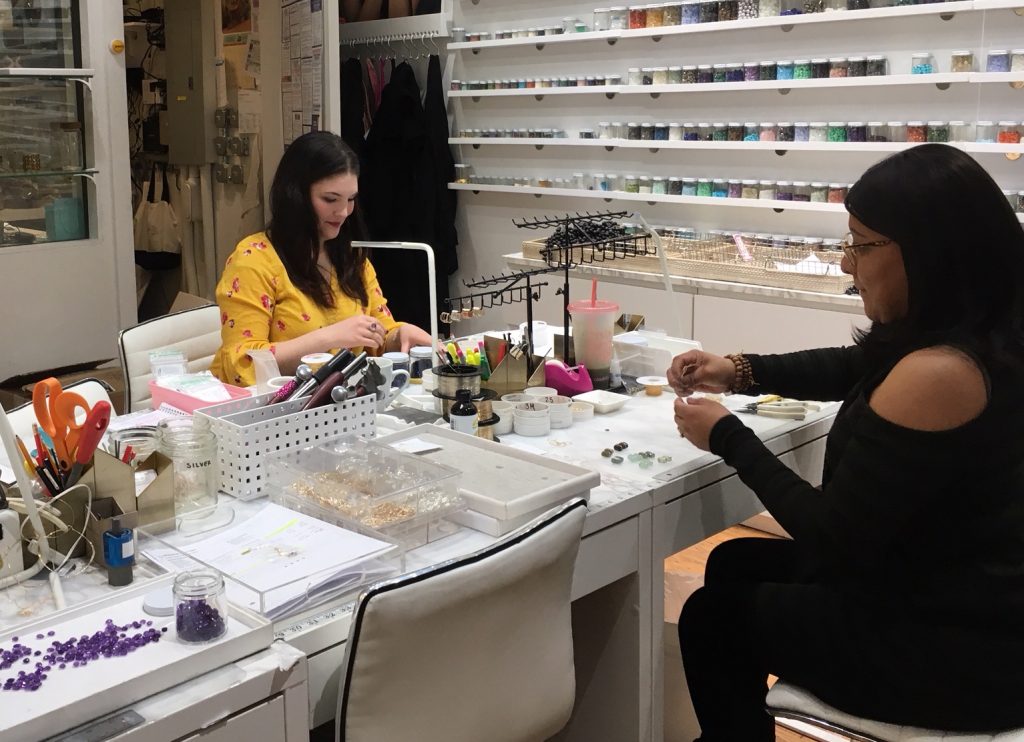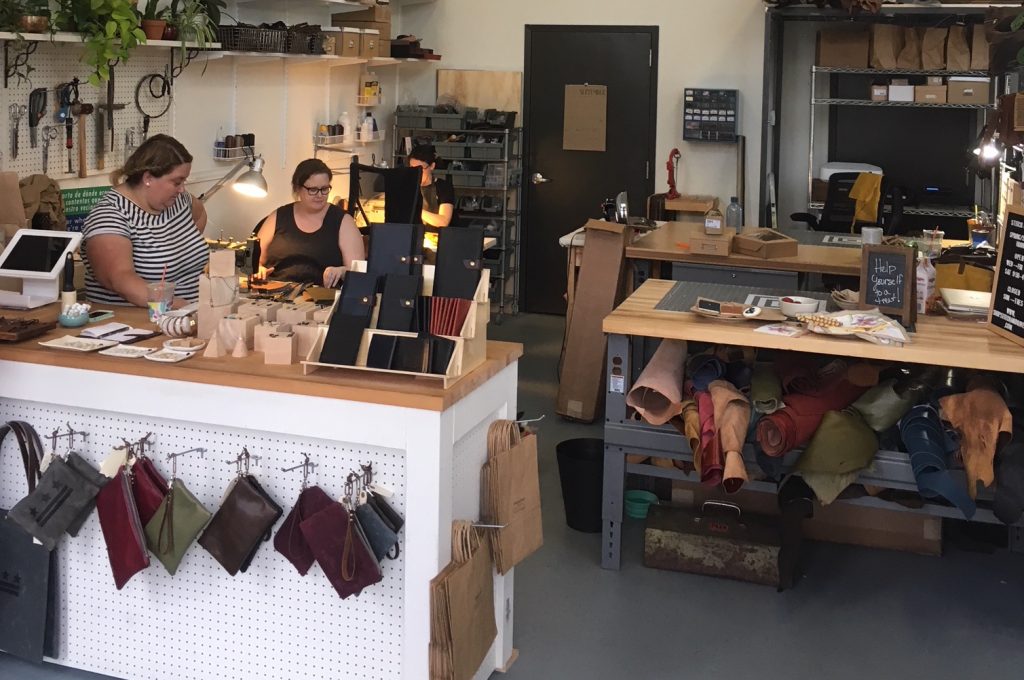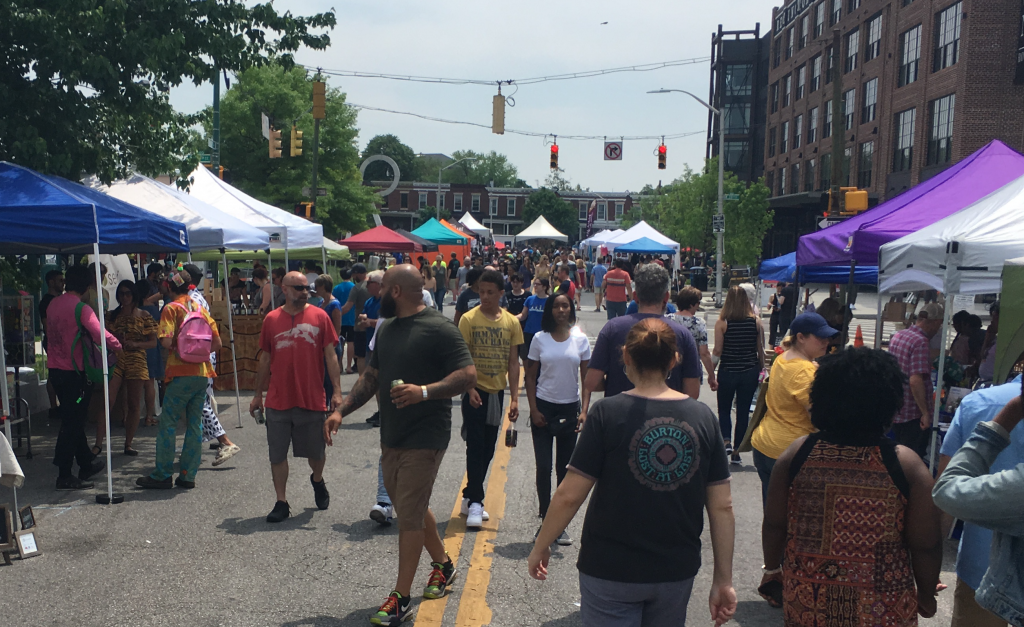
News
By Smart Growth America, June 21, 2018
With free technical assistance from SGA on the issue available right now, it’s a good time to talk about what small-scale manufacturing is and how it can be a powerful part of the recipe for building great downtowns and neighborhoods in communities of nearly any size.

This is a guest post from Ilana Preuss, Founder & CEO of Recast City, which is partnering with SGA on our small-scale manufacturing and place-based economic development assistance.
How can we tell the story of our neighborhoods with pride? How can we grow local businesses and foster more local business owners? How can we showcase those hidden gems within all of our communities? And how do we bring all of this together to reinvest in our neighborhoods and create great places for everyone?
Small-scale manufacturing businesses are often these hidden gems. These businesses that produce tangible goods—from soaps to handbags and craft brewing to 3D printed prototypes—showcase the talents of our residents and invite everyone to beam with pride about products made locally.
These businesses populate every city, town and county. They sell their products locally, nationally, and even internationally using a myriad of online sales tools. They may be part of a broader supply chain for large manufacturing in your region, or they may sell consumer products. But they definitely hire local and they source products locally whenever possible.

Small-scale manufacturing businesses are a way to build wealth within our own communities—no matter where we are or where we come from. These businesses can have a powerful role in solving our economic woes if local leaders and advocates include small-scale manufacturing as one of the tools at their disposal for local economic development and neighborhood reinvestment.
In our work at Recast City with local governments and civic leaders who value these businesses, we find that communities reap many benefits when they invest in this sector and find ways to promote their existence, including:
- Identifying a new tenant type in the face of weakening retail and office markets. These businesses are quiet and clean neighbors and help draw foot traffic to main streets and neighborhood centers in need of some energy.
- Creating new forms of by-right development. Many local governments add “artisan manufacturing” or “small-scale production” land-use definitions to the local code and include it as a by-right use across commercial and industrial zones to promote a new mix of uses.
- Promoting self-revitalization. Every community has in-home businesses that could instead be a vital part of the main street community. Civic organizations can help these business owners expand into vacant commercial space so that community members instigate neighborhood reinvestment themselves.
- Growing middle-income jobs. These businesses pay living wages with average salaries that are 50 to 100 percent more than retail or service jobs. They fill a middle-income job gap found throughout the country.
- Sparking neighborhood energy. People are proud to buy products made in their city, town or neighborhood. They come together to support these businesses and they create a positive energy and a “cool factor” wherever they come together.
These pieces, and the energy and benefits they generate, result in more business creation, more local sales, growing property value, and real estate reinvestment. And when combined with a focus on investment in downtown or in our walkable neighborhoods, these businesses fill our local storefronts and give us a reason to come together to celebrate the great places that we love.
Is your community ready to create this energy and economic growth? Apply to win a small-scale manufacturing and place-based economic development assistance project today. Applications are due by June 29 at 5 p.m. Eastern. Submit yours today.
Ilana Preuss is the Founder & CEO of Recast City, and the consultant and partner to Smart Growth America on this technical assistance initiative funded by the U.S. Economic Development Administration.

Related News

© 2025 Smart Growth America. All rights reserved
Site By3Lane Marketing








